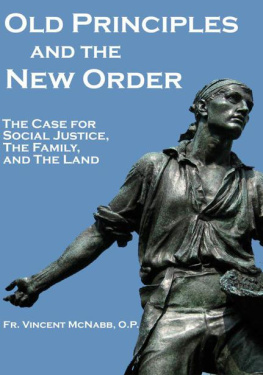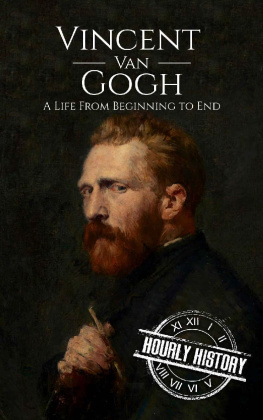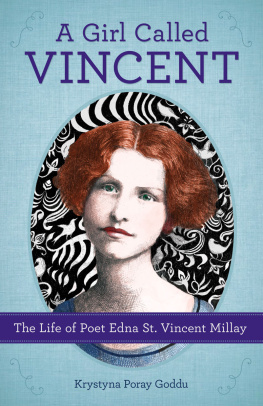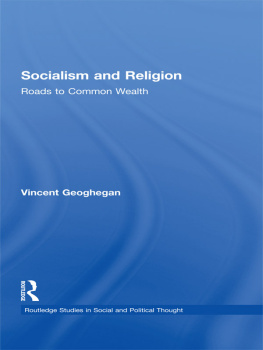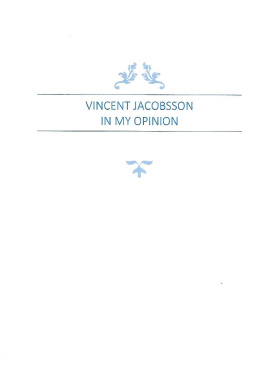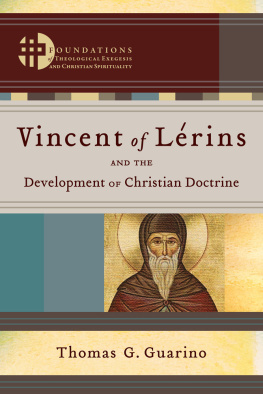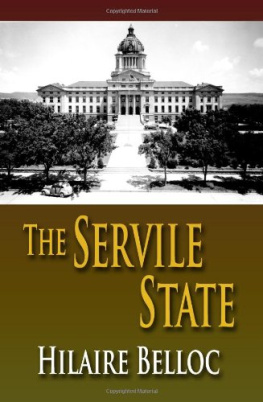OLD
PRINCIPLES
AND THE
NEW ORDER
BY
VINCENT McNABB, O.P. N IHIL OBSTAT ARTHUR J. SCANLAN, S.T.D. Censor Librarian
I MPRIMATUR
FRANCIS J. SPELLMAN, D.D.
Archbishop, New York. July 28, 1942
To the men and women of the English Catholic Land Movement who, bravely and alone, left England's cities for England's soil and whose seeming failures like winter sowings may yet be blessed by God unto autumn reapings.
Cover Photo: The Sower by Sir William Hamo Thornycroft.
Photo by mira66, used under Creative Commons License.
CONTENTS
FOREWORD
F ATHER V INCENT M C N ABB is a picturesque figure in the Catholic life of London. You can see him on a platform in Hyde Park preaching to a vast crowd on Good Friday, taking them along the road of the Cross, while a lay speaker on another platform holds up one by one the pictures of the fourteen Stations. The silence may be felt by one standing at the edge of the crowd: looking round a few minutes later one is no longer at the edge but in the midst of a far larger crowd, still gathering. I have tried this experiment three or four times during the hour and a half that lie has stood there and each time the big silent crowd has grown. On Holy Saturday again Father Vincent is there: with no pictures now, but only the crucifix that is always attached to the platform. Holding this with his right hand, dwelling on Christ no longer suffering but now laid in the tomb, he asks his hearers to descend also, down into the depths of their own hearts where Christ done to death by our sins, buried now, is awaiting resurrection. Taking the Ten Commandments he examines the conscience of that crowd of ordinary Londoners and teaches them to make an act of sorrow. Meanwhile all the contemplatives of England have been praying year by year at the very hours that he is speaking for the souls he is trying to reach.
Father Vincent belongs to London. His convent lies in a deeply poverty-stricken area, and he has written with rare understanding of the slums and especially of the womanly virtues that survive its horrors. Moving among these folk of his, covering the several miles that lie between them and Hyde Park, he goes always on foot, in big black boots usually broken at the sidesfor thus he keeps very literally his vow of poverty. The habit which he wears all the time and the keen emaciated face make him look so like another friar, the Franciscan St. Bernardino of Siena, that the mind unconsciously abstracts from the surrounding scene and seems carried back to the Middle Ages as to his proper element and environment. When he speaks or writes it is the samefor one who has learned to understand his language. Those who have not learned it speak of him as a socialist, especially after they have been listening to his lectures "against that economic theory." For Father Vincent has belonged always to that little group led by G. K. Chesterton and Hilaire Belloc who began so many years ago to see and to show that our economic troubles cannot be solved merely by pitting a form of socialism called "Christian" against the obvious evil called Capitalism, that in fact both these systems have so much in common that both are forms of the Servile State: both must be fought and both replaced by a true Christian and Catholic sociology. "Father Vincent McNabb," wrote Chesterton in G.K.'s Weekly, "is one of the few great men of our time. He is a great deal too great to be of our time." In the series of three articles in which these words occur he also describes Father Vincent as being "one of the more drastic and dogmatic of our group." "In every movement," he wrote, "there are disputes; in every movement there is an Extreme Right and an Extreme Left: in every movement there are some uncompromising and some ready for compromise. But in our movement even unworldliness is double-edged: and the sword of the spirit cuts both ways."
Readers of these essays will understand what G. K. meant. For to those who would offer palliatives for the evils that surround and even permeate Catholics today Fr. Vincent's "No" is so uncompromising, and some of them will feel is so uncivil. He dismisses the best of their suggestions as only "first aid" and of no permanent value. He attacks a Catholic farm expert who writes of prices and markets for not "putting first things first." He writes of "the scented literature which so often offers deodorants as disinfectants." But he does not even want disinfectants. He wants the smell of fresh hay or equally of a dung-spread field where wheat will presently spring.
There is perhaps an element in his writing of the nostalgia of the Londoner for the country, but it goes far deeper than that. "First things first" is his favorite motto, and to him the first thingsin that orderare the family and the land. The land, only second to the family, must support the family: not indirectly but directly. I think perhaps the world he hates most is Market: neither does he love Machinery. Yet "the accused," he says in defence of his attitude towards the world of today "never wished to go back to things primitive but to things primary." He loves life and he loves growth. Often he harks back to his childhood in Ireland, son of a sea captain, with a mother who said of the number of her children, "Eleven thank God." The two loves of his life he tells in the words, "Ireland is my mother and England is my wife," and like many another man he has always felt that his wife could learn quite a lot from his mother! But chiefly Father Vincent is concerned that we should all learn from Holy Mother Church: that we should not relegate her teaching to a single department but see it spread throughout life. These essays range over a wide period of time in their writing. It will be noticed, I think, that much which looked fantastic a few years ago does not look that way today. Father Vincent's life like his outlook emphasizes things that today we are slowly learning. When there was no paper shortage, he turned his envelopes inside out and used them again because of holy poverty: when there was no shortage of tires or of gas, he walked for the same reason. On the land, he loves to say, you need not waste a moment of time or a scrap of material. Thrift and energy and the creation of real values may come to us again as at the dawning of a new daylight. In the story of creation, it is written "the evening and the morning" were the first day. If the evening and the dark night we are now living shall prove the beginning of a new day in the story of God's mercies to man I think, this friar will stand like the hermits in the early Christian world as a star heralding the dawn.
M AISIE W ARD
AUTHOR'S INTRODUCTION
T HE C HURCH is not primarily interested in politics or economics, because neither politics nor economics are primary. Yet the Church is necessarily, and greatly interested in politics and economics because both politics and economics are moral. This book, therefore, has been written by a priest-teacher of the Church, not as a politician nor as an economist seeking the civil well-being of the State. But it has been written by a theologian whose concern must be for those moral principles which are the necessary root of the civil well-being of the State. The book rests therefore on 1. Certain dogmatic and moral principles;
- Certain undeniable facts; and it makes
- Certain practical proposals.
The first principle is that there is a God, our Creator Whom we must love and serve; and Whom we cannot love and serve without loving and serving our fellow-creature. The second principle is that the Family is the unit of all social life; and that therefore the value of all social proposals must be tested by their effect on the Family.
The third (psychological) principle is that from the average man we cannot expect more than average virtue. A set of circumstances demanding from the average man more than average (i.e., heroic) virtue is called an Occasion of Sin.
Next page
